Sea buckthorn juice with lemon and honey
Sea buckthorn with honey, in the form of syrup / juice is an ideal combination both in terms of health benefits and taste, sweet and sour, slightly bitter. This juice is practically a general tonic, an immuno-stimulator, a protector of the body against various diseases.
Servings: 15 servings
600ml, ~ 15 servings, one serving being 1-2 tablespoons
Ingredients
Materials
Fruit juicer with worm shaft
Preparation
 Sea buckthorn berries are detached from the branches with scissors, then washed by rinsing in 2-3 waters.. After washing, it is left to dry on paper towels, on wide surfaces for about 1-2 hours.
Sea buckthorn berries are detached from the branches with scissors, then washed by rinsing in 2-3 waters.. After washing, it is left to dry on paper towels, on wide surfaces for about 1-2 hours.
To remove sea buckthorn from the branches, the freezing method can also be used, this being much more productive (much faster). Wash and peel the lemon, then peel it into several slices.
Wash and peel the lemon, then peel it into several slices. With the sea buckthorn and lemon ready, in this stage you will start squeezing with the help of a juicer with a worm shaft.
With the sea buckthorn and lemon ready, in this stage you will start squeezing with the help of a juicer with a worm shaft.
Lemon slices are added to the juicer while sea buckthorn is added, these (lemon slices) also have the role of decongesting the juicer sieve (fluidizes the juice and unclogs the sieve). At the end, add honey over the juice and mix until smooth.
At the end, add honey over the juice and mix until smooth. The formed syrup is poured into glass containers that are hermetically sealed and stored away from light and cold (refrigerator).
The formed syrup is poured into glass containers that are hermetically sealed and stored away from light and cold (refrigerator). The obtained pulp is dried and can be used
The obtained pulp is dried and can be used
preparation of healthy teas
Administration
It can also be consumed in various drinks.
Cures of 2-4 weeks are recommended, especially in the autumn-winter period.
Observations
It must be kept in the refrigerator.
It is recommended to consume it as soon as possible after opening.
Sea buckthorn, also called Romanian ginseng
Sea buckthorn contains an incredible number of 190 nutrients and phytonutrients.
The amount of vitamin C is 12 times higher than that of orange.
Sea buckthorn is the only plant on the planet that contains omega 7, an extremely hard acid to find.
Storage and validity:
→ It must be kept in the refrigerator, hermetically sealed.
→ From time to time it is recommended to shake bottles.
→ It is recommended to be kept in small bottles.
→ It is recommended to consume in maximum 1 year, if the bottle is not open.
→ If the bottle is open, it is recommended to consume it within a maximum of 3 months to avoid oxidation of the main nutrients in contact with air.
Effects and benefits
- strengthens immunity
- general tonic
- contributes to vision health
- prevents colds and flu
- effective in diseases of the respiratory system (chronic bronchitis, asthma, etc.)
- good against viral infections: herpes, viral hepatitis A, B or C, HIV or other viral infections
- helps the digestive system, helps with weight loss
- protects the heart
- reduces bad cholesterol (LDL)
- reduces the risk of atherosclerosis, heart attack and stroke because there are fewer blockages in the arteries and blood vessels
- helps maintain the balance of fatty acids in the body: omega 3, 6, 7 and 9
- rich in flavonoids that reduce inflammation and support the functioning of the immune system
- protects the liver (acute / chronic hepatitis and cirrhosis in its early stages), spleen, kidneys
- good for enterocolitis
- treats anemia, depression and stress
- vitaminizing, mineralizing: A, B1, B2, B6, B9, E, F, K, P, beta-carotene, cellulose, phosphorus, potassium, iron, calcium, magnesium
- strong antioxidant
- protects the body from free radicals
- anti-aging
- good anti-inflammatory
- cytoprotective
- helps the nervous system
- recommended for children with rickets, dystrophic or very sensitive to diseases
- fight against cancer
Side effects
- in large quantities it can become a diuretic
Contraindications
- the consumption of sea buckthorn during pregnancy and lactation is not recommended
- the consumption of sea buckthorn is not recommended as long as a treatment based on anticoagulant or antiplatelet medicines is followed in parallel
- is not administered in parallel with anti-inflammatory drugs or in the case of acute pancreatitis and acute cholecystitis.
FAQ 💡❓
What are the differences between sea buckthorn juice obtained with a slow juicer and with a blender?
➡️ The slow juicer extracts juice cold, preserving vitamin C and antioxidants, while the blender slightly heats the mixture, degrading some nutrients.
Why combine sea buckthorn with lemon and honey?
➡️ Lemon adds citric acid and enhances antioxidants, while honey balances the sour taste and acts as a natural preservative.
How long can sea buckthorn juice with lemon and honey be kept in the fridge?
➡️ It lasts 2–3 days refrigerated, but is best consumed within 24 hours for maximum nutrients.
Can sea buckthorn juice with lemon and honey be frozen?
➡️ Yes, it can be frozen in small portions. Honey may crystallize after thawing, changing texture.
How should this juice be consumed for immunity?
➡️ 50–100 ml daily, in the morning on an empty stomach or before meals, for optimal absorption.
Can children drink sea buckthorn juice with honey and lemon?
➡️ Yes, but only after 1 year of age, since honey carries a risk of infant botulism.
What effect does this juice have on digestion?
➡️ It stimulates gastric secretion, supports gut flora, helps with mild heartburn, and detoxifies.
Are there any side effects?
➡️ Excess may cause acidity, diarrhea, or abdominal discomfort, especially in sensitive people.
Can diabetics consume this juice?
➡️ Caution is advised due to honey. It can be made without honey or with approved sweeteners.
Is this juice safe during pregnancy?
➡️ Yes, in moderate amounts it supports immunity and energy, but medical advice is recommended.
Does this juice help with chronic fatigue?
➡️ Yes, due to high vitamin C, flavonoids, and minerals, it reduces fatigue and boosts energy.
Does it help prevent colds?
➡️ Yes, regular use strengthens immunity and reduces respiratory infections.
How much does honey influence the juice’s properties?
➡️ Honey improves taste and adds enzymes, B vitamins, and antibacterial action, complementing sea buckthorn and lemon.

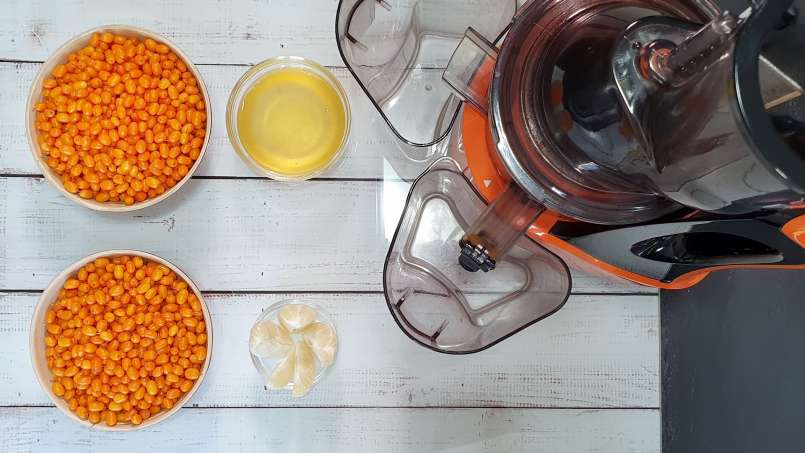
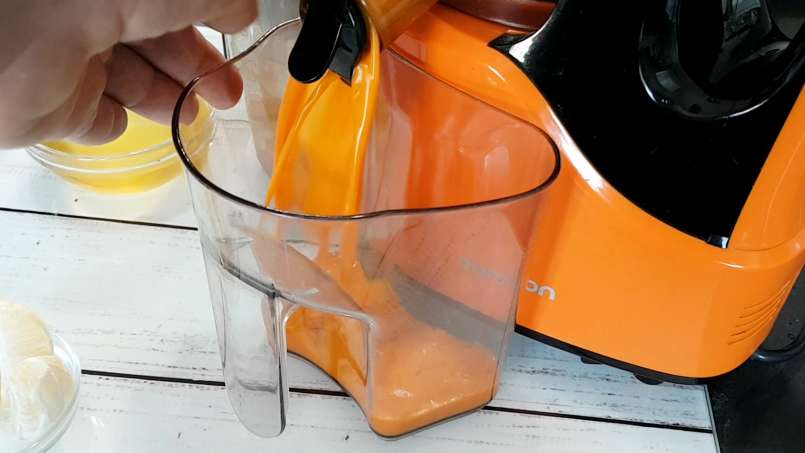
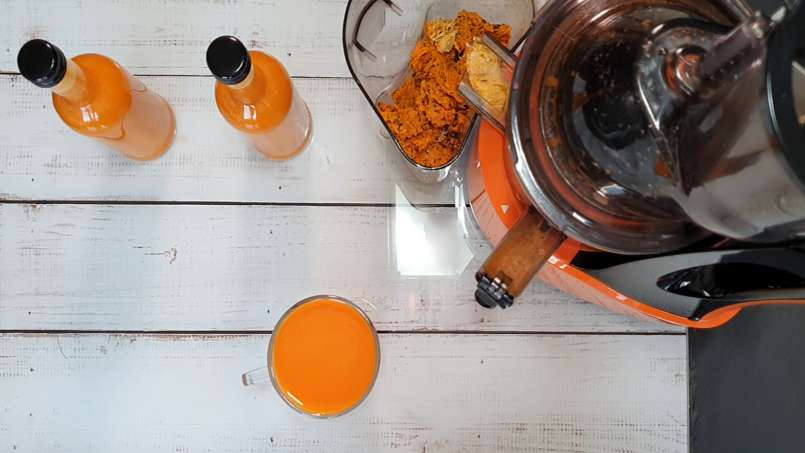
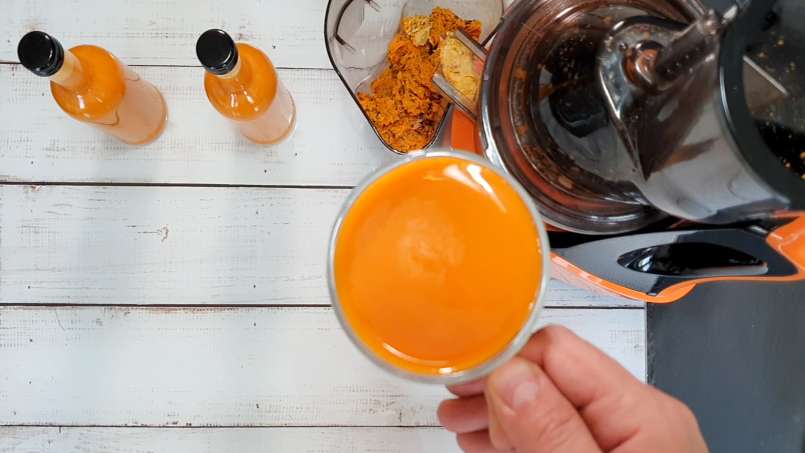
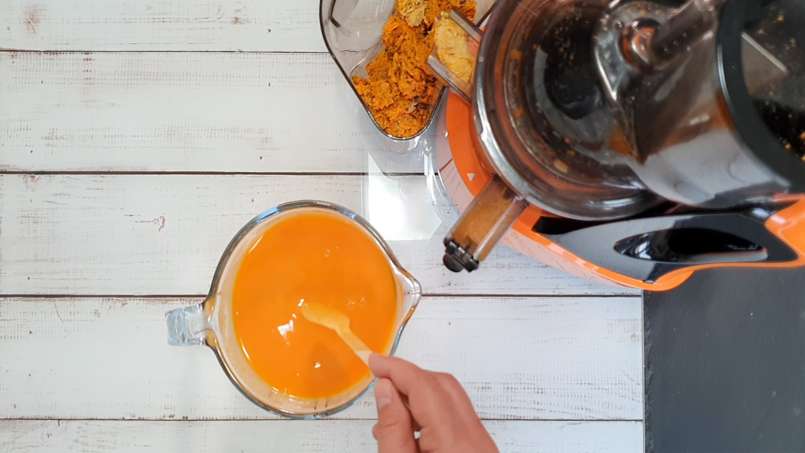
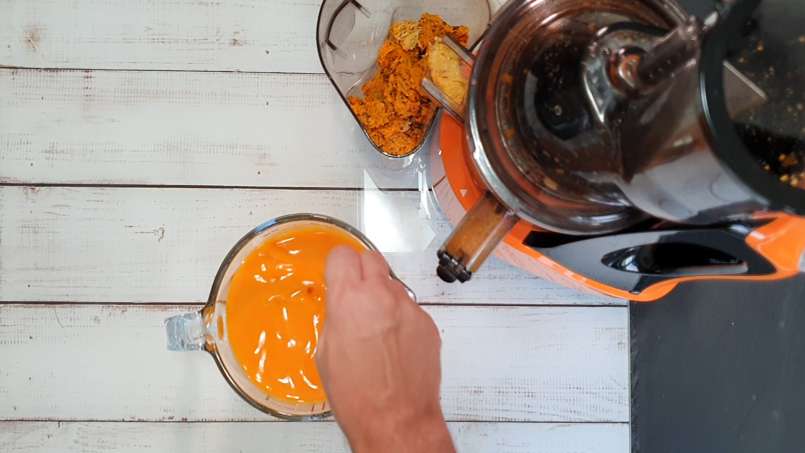
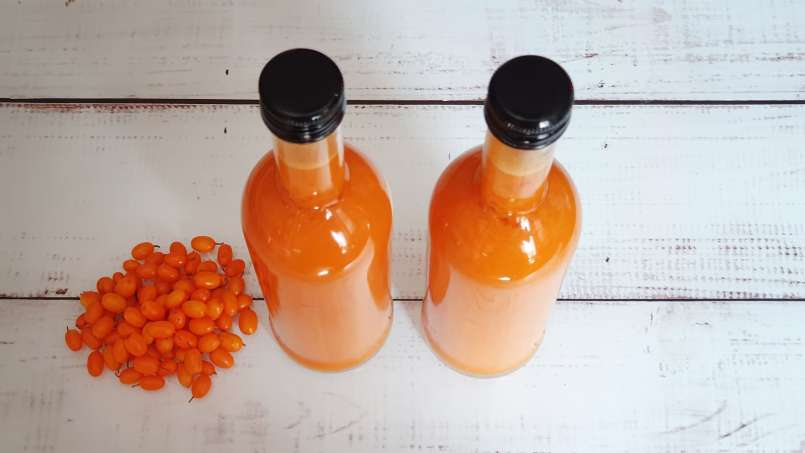
Comments